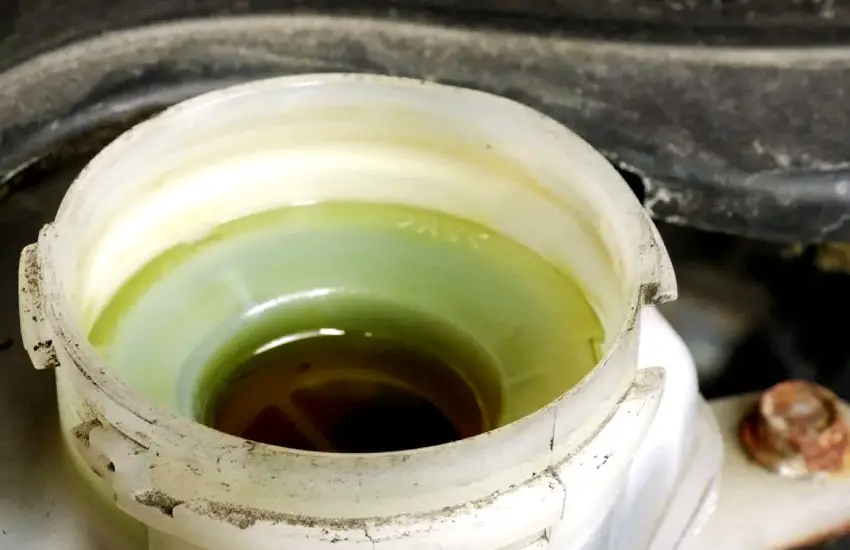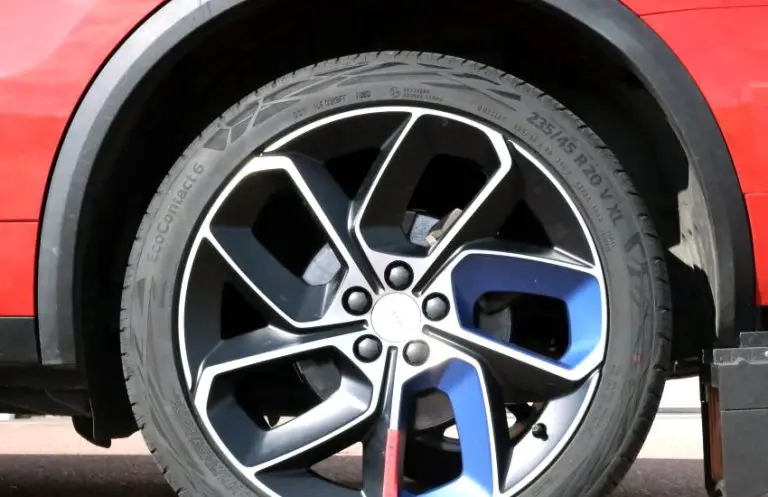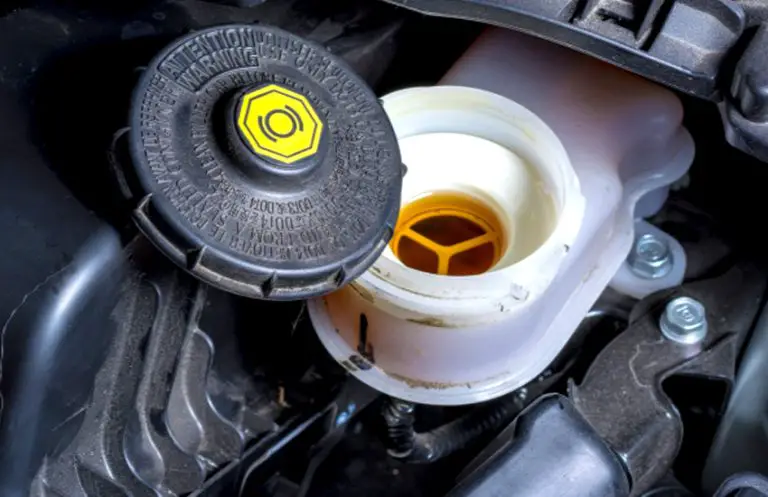When it comes to car maintenance, brake fluid is a crucial component that often doesn’t get the attention it deserves. Despite being less talked about compared to engine oil or coolant, brake fluid plays a pivotal role in the safety and efficiency of a vehicle.
One interesting and lesser-known fact about brake fluid is its thermal properties – specifically, why it feels warm when it comes into contact with the skin. Understanding this can offer insights into the fluid’s characteristics and the overall brake system’s functionality.
In this blog post, we’ll delve into the reasons behind this phenomenon and explore other related aspects of brake fluid to enhance your knowledge and appreciation for this vital automotive fluid.

Understanding Brake Fluid and Its Thermal Properties
Brake fluid is a type of hydraulic fluid used in hydraulic brake and clutch applications in vehicles. Its primary function is to transfer force into pressure and amplify braking force. The thermal properties of brake fluid are vital for its performance, particularly its ability to handle the high temperatures generated during braking.
The Role of Brake Fluid
Brake fluid is subjected to extreme conditions. It must maintain a stable viscosity under varying temperatures, resist oxidation and corrosion, and have a high boiling point to prevent vapor lock. Vapor lock occurs when the fluid boils and forms vapor bubbles, which can compress and result in brake failure. The warmth you feel when brake fluid contacts your skin is a result of its chemical composition and its environment within the braking system.
Heat Generation in Braking Systems
When you press the brake pedal, the brake fluid transfers the force from your foot to the brake pads or shoes. These components then create friction against the brake rotors or drums, slowing down the vehicle. This friction generates a significant amount of heat. In fact, the temperature of brake components can soar to hundreds of degrees Fahrenheit during intense braking. Since brake fluid is in direct contact with these components, it absorbs and dissipates heat to prevent the system from overheating.
Thermal Conductivity of Brake Fluid
Brake fluid is formulated to have specific thermal properties that allow it to handle the heat generated during braking. One key property is thermal conductivity, which is the ability of a material to conduct heat. Brake fluid’s thermal conductivity ensures that heat is evenly distributed throughout the brake system, preventing localized hotspots that could lead to brake failure. When you touch brake fluid, the warmth you feel is a result of this thermal conductivity. The fluid quickly transfers the heat from the system to your skin, making it feel warm.
Brake Fluid Composition
Brake fluid is typically composed of glycol ethers or silicone, each with unique thermal properties. Glycol ether-based fluids, such as DOT 3, DOT 4, and DOT 5.1, are hygroscopic, meaning they absorb moisture from the air. This absorption can lower the boiling point over time, making regular maintenance and replacement crucial. Silicone-based fluids, like DOT 5, are hydrophobic and do not absorb moisture, but they are less commonly used due to their compatibility issues with certain braking systems.
Understanding the Sensation of Warmth
The sensation of warmth from brake fluid on your skin is not merely due to its temperature. It also involves the way our skin perceives heat transfer. Human skin is sensitive to changes in temperature, and when a substance with high thermal conductivity, like brake fluid, comes into contact with it, the heat is rapidly transferred to the skin, creating a sensation of warmth. This is similar to how metals, which have high thermal conductivity, feel colder or warmer to the touch compared to materials with lower thermal conductivity, even if they are at the same temperature.
Ensuring Safety and Proper Handling of Brake Fluid
Handling brake fluid safely is paramount to avoid potential hazards. Given its thermal properties and chemical composition, improper handling can lead to skin irritation or other health risks. Additionally, maintaining the brake system and ensuring the brake fluid is in good condition are crucial for vehicle safety.
Proper Storage and Handling
Brake fluid should be stored in its original, tightly sealed container to prevent contamination from moisture and dirt. When handling brake fluid, it’s essential to wear protective gloves and eyewear to avoid direct contact with the skin and eyes. In case of accidental contact, the affected area should be thoroughly washed with soap and water.
Regular Maintenance and Inspection
Regular inspection of the brake fluid is vital to ensure it remains effective. Over time, brake fluid can absorb moisture, leading to a lower boiling point and reduced performance. It’s recommended to check the brake fluid level and quality periodically and replace it as per the manufacturer’s guidelines, typically every two years. This helps maintain optimal braking performance and prevents potential issues such as vapor lock or corrosion within the braking system.
Recognizing Signs of Brake Fluid Issues
Being aware of the signs of brake fluid problems can help prevent serious issues. Common indicators include a spongy or soft brake pedal, reduced braking efficiency, or a warning light on the dashboard. If you notice any of these signs, it’s crucial to have your brake system inspected by a professional to identify and address any issues promptly.
Environmental Considerations
Brake fluid is considered hazardous waste and should be disposed of properly. It should never be poured down the drain or thrown in the trash. Many auto parts stores and service centers offer recycling services for used brake fluid. Proper disposal helps protect the environment and ensures compliance with local regulations.
Educating Yourself and Others
Understanding the importance of brake fluid and its properties can help you better appreciate the complexity of your vehicle’s braking system. Sharing this knowledge with others can promote safe practices and awareness, contributing to overall road safety.
I hope this detailed exploration of why brake fluid feels warm on the skin has provided valuable insights into the properties and importance of this crucial automotive fluid. Understanding the thermal characteristics, proper handling, and maintenance of brake fluid can significantly enhance the safety and performance of your vehicle’s braking system. Regular inspection and proper storage are key to ensuring your brake fluid remains effective and safe.
Are These Questions in Your Mind?
Is it safe to touch brake fluid?
No, it is not safe to touch brake fluid. Brake fluid can cause skin irritation and other health issues. Always wear protective gloves and eyewear when handling brake fluid.
Can brake fluid cause burns?
Brake fluid can cause irritation and, in some cases, chemical burns if it remains in contact with the skin for an extended period. Rinse thoroughly with soap and water if contact occurs.
Do I need to replace brake fluid regularly?
Yes, brake fluid should be replaced according to the manufacturer’s recommendations, typically every two years, to maintain optimal performance and safety.
Is it normal for brake fluid to get warm?
Yes, it is normal for brake fluid to get warm due to the heat generated by the braking process. This warmth is a sign of the fluid’s effective heat transfer properties.
Can old brake fluid affect braking performance?
Yes, old brake fluid can absorb moisture, lowering its boiling point and potentially reducing braking performance. Regular replacement is essential.
Do I need to bleed my brakes when changing the fluid?
Yes, bleeding the brakes is necessary when changing the fluid to remove any air bubbles that could compromise braking efficiency.
Can I mix different types of brake fluid?
No, mixing different types of brake fluid can lead to compatibility issues and potentially damage the braking system. Always use the specified type for your vehicle.
Is it possible for brake fluid to leak?
Yes, brake fluid can leak due to damaged brake lines, seals, or other components. A leak should be addressed immediately to prevent brake failure.
Do I need special tools to change brake fluid?
While basic tools can be used, specialized tools like a brake bleeder kit can make the process easier and more efficient.
Can I use brake fluid from an opened container?
It’s best to use fresh brake fluid. If using fluid from an opened container, ensure it has been tightly sealed and stored properly to prevent contamination from moisture and dirt.


